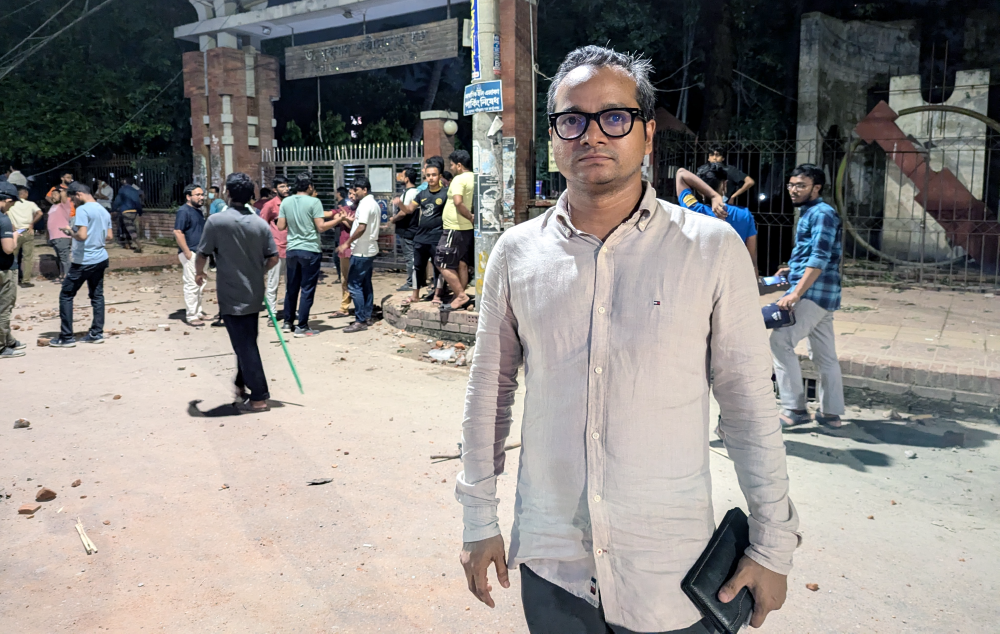Journalists’ chests, too, riddled with police bullets
Journalists’ chests, too, riddled with police bullets

I was standing in front of the morgue at Dhaka Medical College Hospital, along with two colleagues, on Friday, July 19th. I had spent the previous day trying to track the casualties of the quota reform movement across Dhaka. That inevitably led me here. A man of a similar age approaches me and bursts into tears. Collecting himself enough to speak, he says, “You are journalists too! You are alive. Why is my brother lying in the morgue? What did my brother do wrong? He went to cover the students’ movement as a journalist. Is that why they shredded his chest with bullets?”
The person next to me tells me that he is the younger brother of Hasan Mehedi, the senior reporter of Dhaka Times, who was shot dead by the police in the capital’s Jatrabari neighbourhood while covering the quota reform movement. He was doing his job when the police shot him to death in the afternoon of July 18, near the Toll Plaza at Mayor Hanif Flyover, in Kajla, Jatrabari.
Hasan Mehedi was not alone.
Among more than 200 who died during Bangladesh’s civil unrest are four journalists. According to family members and press reports, Dhaka Times lost Hasan Mehedi and photojournalist Tahir Zaman Priya to police bullets in the Jatrabari and Science Lab neighbourhoods in Dhaka, respectively. Outside the capital, Shakil Hossain, a local correspondent of Daily Bhorer Awaj, a local vernacular in Gazipur, and A. T. M. Turab, the Sylhet correspondent of Naya Diganta newspaper, were also killed.
Hundreds of journalists have been injured at the hands of state forces while covering the protests, including one working for Netra News, who paused work for medical treatment. Nearly all of them have been hit by tear gas shells, rubber bullets, and live rounds fired by law enforcement agencies across the country.
The violence did not end with the loss of life and the injuries sustained, many of which appear to be permanent. Midnight raids on the homes of journalists who are constantly in the field, reporting on the crisis, and threatening visits to their offices are regular occurrences.
The national press, long beholden to self-censorship and controlled either by regime-supporting owners or the regime itself, has long been a well-oiled propaganda machine of the Awami League government. But these recent tactics of suppressing and silencing the handful of journalists intent on practising independent journalism are proving to be mortal threats.
Members of law enforcement agencies determined to intimidate the pen with their bullets and repressive tactics should know that the path to journalism for the public cannot simply be blocked. Our pens will work for the people even when we are facing the barrels of the state’s guns.●
Ehasan Mahmud is a Special Correspondent at Netra News based in Dhaka, Bangladesh.